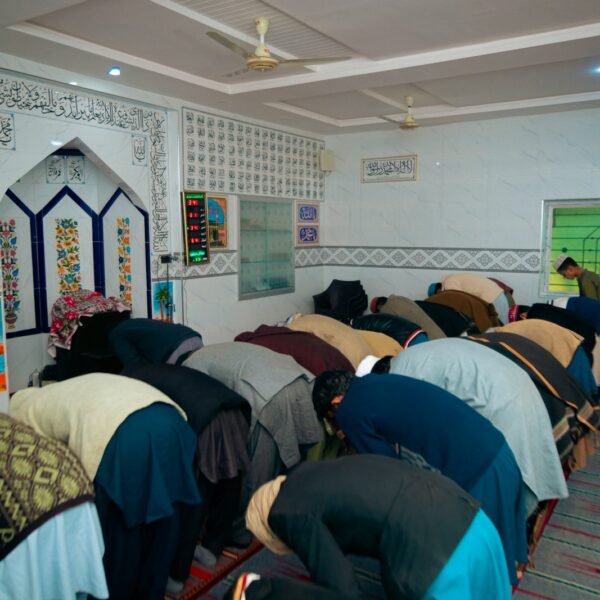Many Muslims worldwide wonder if it’s okay to listen to music during Ramadan. Can You Listen To Music During Ramadan? This question brings up the fine line between Islamic teachings on music and the deep meaning of this holy month. As Ramadan encourages us to reflect and focus on our faith, the debate about music takes center stage. Is it about personal beliefs or following age-old traditions?
Let’s look into the different views on this topic. We’ll see how listening to music in Ramadan affects our spiritual journey.

Understanding Ramadan and Its Significance
Ramadan is the ninth month of the Islamic lunar calendar. It is a time of deep meaning for Muslims worldwide. This month is when the Quran was first given to the Prophet Muhammad. Muslims fast from dawn to sunset, showing their faith and commitment.
Ramadan is more than just not eating or drinking. It’s about growing spiritually, being disciplined, and connecting with Allah. This month makes people think deeply about their faith. They pray more, reflect, and work together in their communities.
Exploring the Cultural Perspectives on Music
Music is a key part of many Islamic cultures. It’s shaped by unique views on music in Islam. In some places, music is a big part of cultural identity and religious expression. Traditional songs and instruments are used in celebrations and rituals, bringing people together and connecting them to their heritage.
On the other hand, some groups see music as a distraction during important religious times like Ramadan. They want to focus on spiritual practices and thinking deeply. This shows how different beliefs and cultural practices affect how people see music.
Regional customs greatly shape these views. In the Middle East, music is a big part of social events and celebrations. But in some places, strict religious views might lead to different attitudes towards music. This highlights the complex relationship between music and spirituality in the Islamic world.
Insights into how MENA consumes music during Ramadan show these varied views.
Is Music Forbidden During Ramadan?
The music prohibition in Islam is a topic of debate among scholars and followers during Ramadan. Many think music can distract people from their spiritual duties. These duties include focusing on prayer and reflection, which are key during this holy month. The Quran doesn’t directly ban music, but different Islamic views on music lead to various interpretations.
Some scholars believe all music is haram, or forbidden. They think even listening to music can take one away from the true spirit of Ramadan. Others argue that some music, like that which brings joy or has cultural significance, might be okay. For example, Sufi musicians use music to connect with the divine in their worship.
Geography and local traditions add to the complexity of music rules during Ramadan. In some places, singing is okay, but playing instruments is not. This shows how individual beliefs and practices can shape religious views on music during this time.
Can You Listen To Music During Ramadan
Music during Ramadan brings different views from various Islamic groups. People look at what holy books say, but their personal beliefs and culture also play a big part. These beliefs show how different people see music in Islam, based on what they think is right.
Different Interpretations Across Islamic Denominations
Looking at how different Islamic groups see music, we see a lot of variety. Sunni Muslims often believe in avoiding music, especially in Ramadan. They think it’s important to focus on prayer and being devoted. On the other hand, Sufism sees music as a way to express deep spiritual feelings. This shows how different views on music in Islam affect how people act and what they believe.
Restrictions Concerning Music In Islamic Communities
The world of music in Islamic communities is complex. It’s shaped by many cultural and regional factors. Different groups see regional music restrictions in Islam in different ways. This leads to many practices and beliefs about music.
Viewpoints from Different Regions
In the Middle East, some follow strict rules about music. But many places value music diversity in Islamic communities. They celebrate with instruments like the Daf or through vocal hymns. This shows how local traditions and norms affect music in religious events.
Modern Interpretations of Music in Islam
In recent years, views on music in Islam have changed a lot. Many Muslims now think it’s okay to listen to music during Ramadan. They believe that listening to music can go hand in hand with being religious.
Some people say that if the music is not too loud and fits with Islamic values, it’s okay. This shows a mix of old traditions and new ways of living. It lets people keep their faith and still enjoy music.
“Music can enrich the spirit without undermining our commitment to faith,” reflects a viewpoint shared by a segment of modern believers.
These new views show how Islamic beliefs are changing with the times. They help us see how people balance their faith with modern life. These ideas also show how music fits into Islamic culture in new ways.
What Does the Holy Quran Say About Music?
The Holy Quran does not directly forbid music. Scholars look to Hadiths and their interpretations for guidance. Some see hints in the Quran that might suggest limits on music, but there’s no clear ban. This leads to different views on what the Quran says about music.
Some scholars believe music is okay for celebrations or to improve mood. They look at Hadiths that warn about certain types of music. This mix of views makes the Islamic stance on music complex.
“The beauty of melodies can uplift the spirit, yet caution is advised in their consumption.”
The debate on music in Islam keeps changing. It’s shaped by culture and the Quran’s teachings.
Opinions of Notable Scholars on Music During Ramadan
Islamic scholars have different views on music during Ramadan. Some think music can take away from the spiritual focus of the month. They say we should focus on worship and thinking deeply, avoiding music as a distraction.
On the other hand, some scholars believe music has its place in Ramadan. They think it can make spiritual experiences better and bring joy to people coming together. They say the right music can help everyone feel connected and devoted, making Ramadan more meaningful.
The debate among Islamic scholars on music is ongoing. It’s influenced by culture, region, and community. By considering these views, people can find a way to balance their beliefs with their love for music during Ramadan.
Sound Considerations: Is Volume a Factor?
The volume of music in Ramadan is crucial in Islamic communities. Many believe it’s okay to listen to music quietly, using headphones or in private. This way, it doesn’t distract and helps focus on devotion and reflection.
Playing loud music in public is seen as rude during Ramadan. It can cause distractions and lead to idle talk and bad behavior. This goes against the month’s spirit of reverence. So, finding a balance between enjoying music and respecting the season is key.
People must think about their music choices during Ramadan. Being careful with the volume helps create a peaceful setting. It also shows respect for the traditions and reverence of this special time.
FAQ
Can You Listen To Music During Ramadan
What do different Islamic denominations say about music during Ramadan?
Are there specific cultural traditions about music during Ramadan?
Does the Quran specifically mention music?
What is the overall sentiment of Islamic scholars toward music in Ramadan?
How does the volume of music impact its acceptability during Ramadan?
How can cultural practices shape one’s view of music during Ramadan?
What has shifted in modern interpretations of music in Islam?

Embracing Faith, One Insight at a Time!
The teachings of the Quran have always guided my path. With a deep passion for Islamic knowledge, I strive to blend the wisdom of tradition with the relevance of today, making the timeless messages of Islam accessible and meaningful for everyone.
Muslim Culture Hub is my platform to share historical insights and thought-provoking articles, exploring both well-known and lesser-discussed aspects of Islamic culture and beliefs. My mission is to create an inclusive online space where everyone can learn, strengthen their faith, and connect with the profound message of Islam.
Join the journey!
May peace be upon you.








